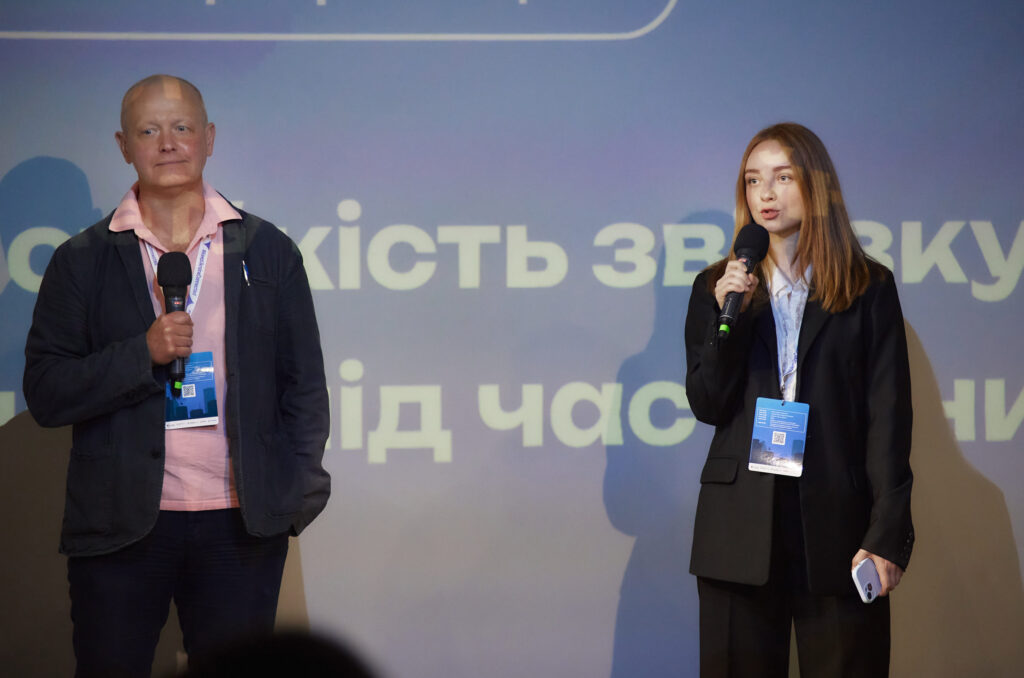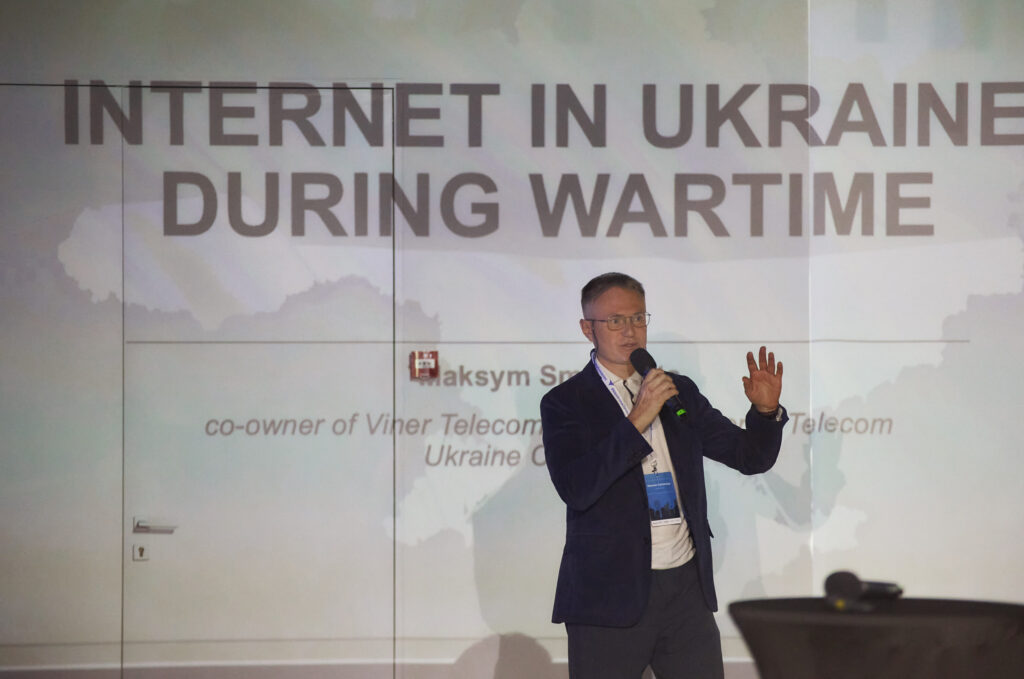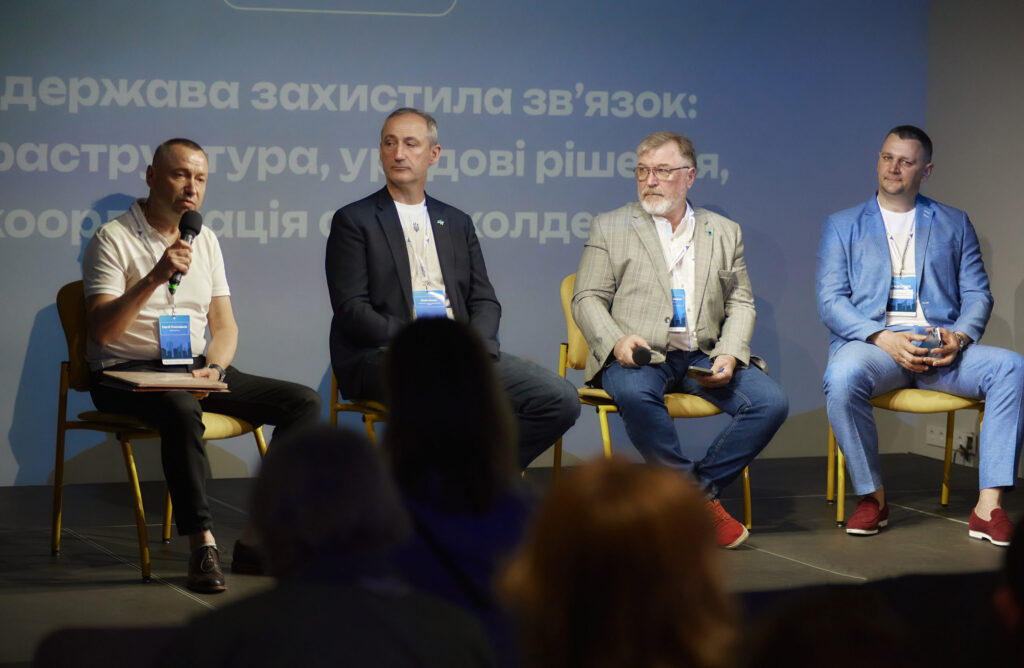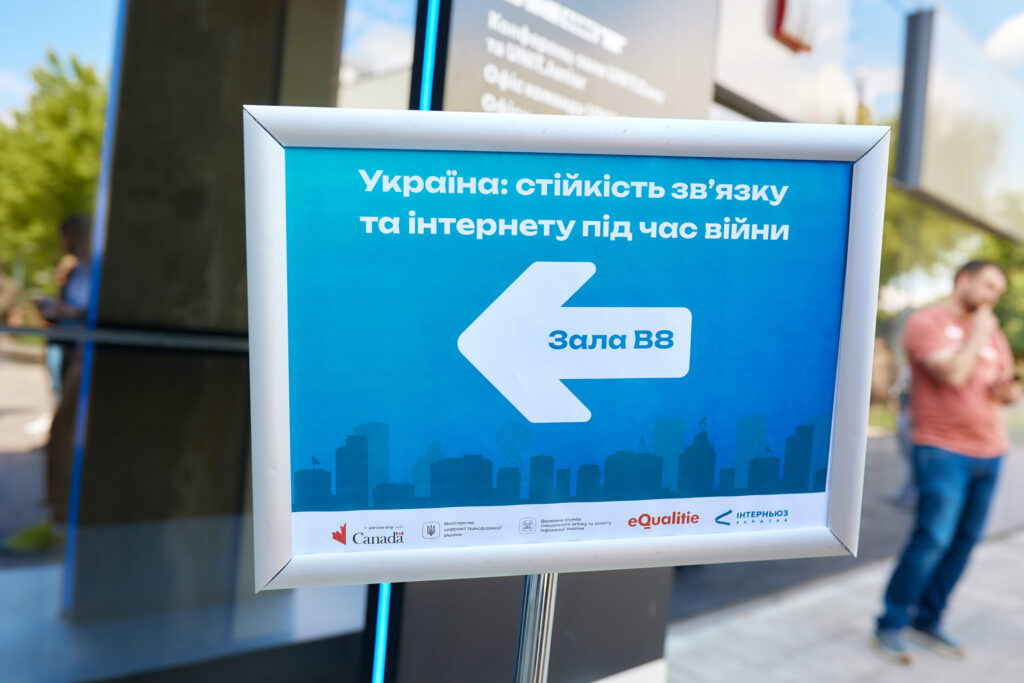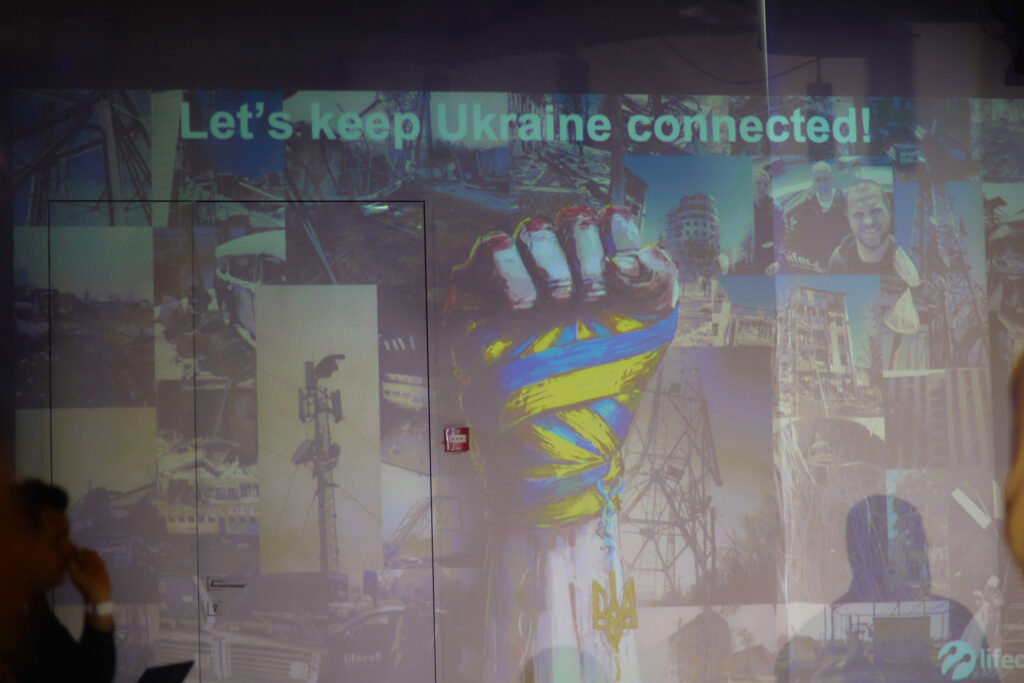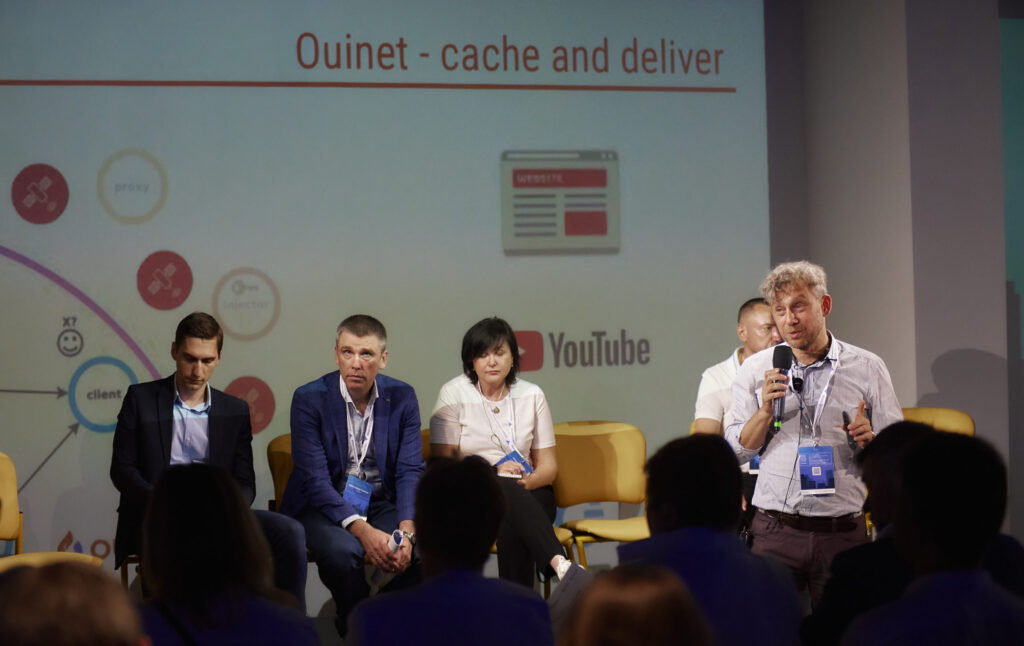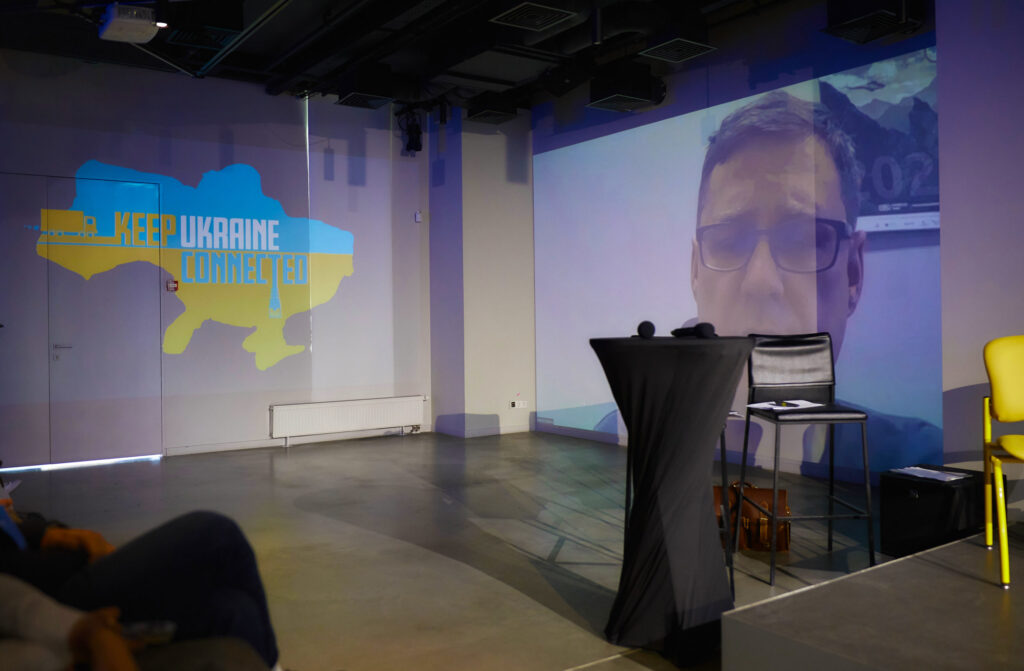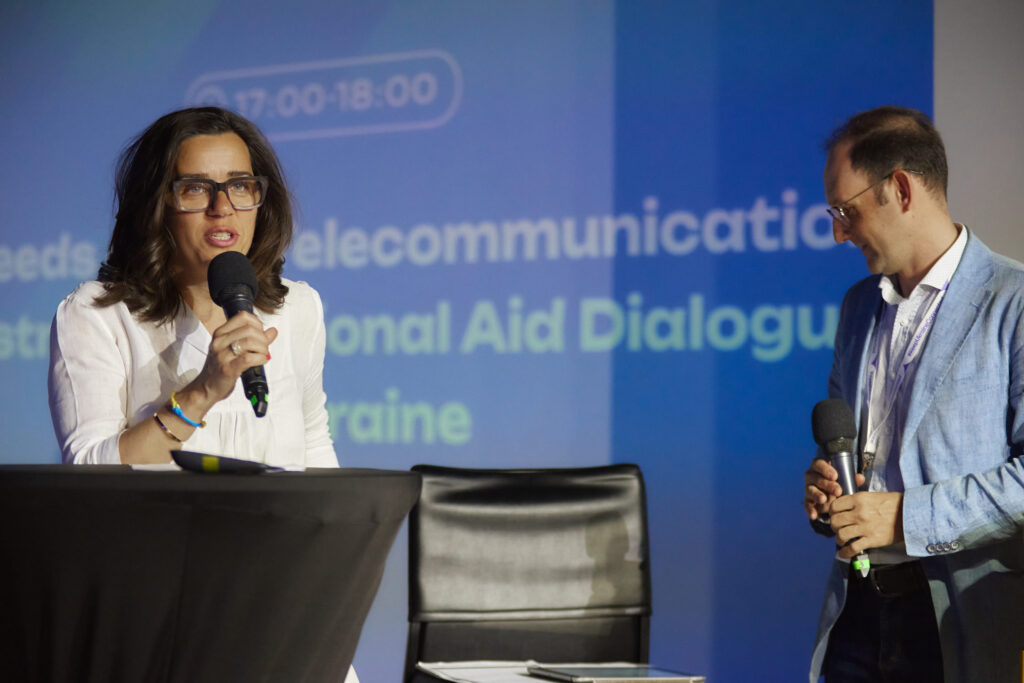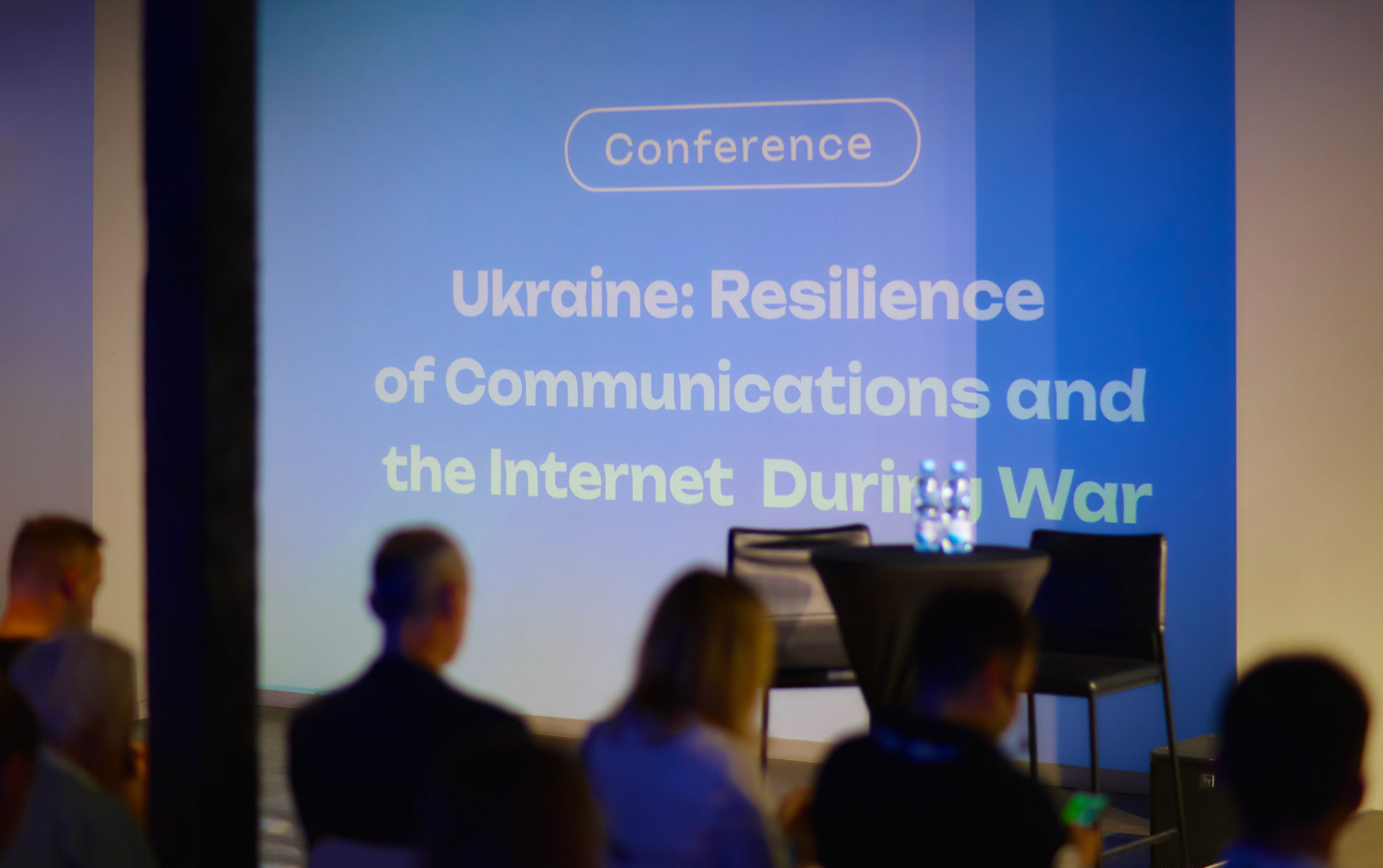The Ukrainian telecoms market incurred $2.3B in losses during the initial year of the invasion, per the World Bank. Key stakeholders, including industry leaders, government officials, and international partners, gathered in Kyiv for the “Ukraine: Communications and Internet Resilience during War” conference on May 26, 2023. Organized by eQualitie and Internews Ukraine, the event focused on the ongoing infrastructure restoration efforts.
The resilience of Ukrainian communications and the Internet in the early months of Russia’s aggression against Ukraine can be attributed to several key factors, with one notable distinction being the establishment of a robust public-private partnership in response to the crisis. These partnerships ensured that government decisions concerning communications stability were swiftly made in the initial weeks of the full-scale invasion.
The Ukrainian government made several notable decisions during the crisis that had a significant impact on the operations of the telecommunications industry:
- Abolishing fees for providers and operators to access electric power infrastructure, saving UAH 800 million.
- Providing free frequencies to enhance network capacity for mobile operators.
- Implementing network quality testing measures.
- Postponing the expiration of telecommunications company licenses.
- Facilitating collaboration between the government and the private sector for equipment delivery.
- Approving passage through checkpoints during curfew for telecoms employees to conduct network repairs.
Decentralization saved the Ukrainian Internet, thanks to effective cooperation and timely decision-making by stakeholders. The united front of the state, critical infrastructure, and business became the decisive factor in the country’s struggle, as emphasized by Volodymyr Zverev of the National Security and Defense Council of Ukraine.
Communications in temporarily occupied and de-occupied territories
In response to the full-scale Russian invasion, most Ukrainian TV channels in the temporarily occupied territories have decoded their signal. According to Oleh Chernysh of the National Council of Ukraine on Television and Radio Broadcasting, 283 licensees remain in these territories, and about 47 satellite broadcasters have temporarily stopped broadcasting.
The Russian Internet has invaded occupied territories, and all mobile and Internet communications are channelled through the Russian Federation. Dmitri Vitaliev of eQualitie, presented the tools that will help to restore communications with these territories:
- dComms is an alternative platform for online communication if access to the Internet is limited.
- Ceno is the world’s first mobile browser that used decentralization to bypass modern Internet censorship methods.
- Ouinet is a set of software tools that provide access to web resources in unreliable Internet conditions or where the Internet is unavailable.
- Deflect is a robust and innovative website protection service designed to withstand distributed denial of service (DDoS) attacks. Deflect offers secure hosting, encrypted connections, and advanced mitigation options.
In the recently de-occupied territories, over 1,700 base stations have been restored, reconnecting residents of 500 settlements, with 91% of mobile networks operational, confirmed Stanislav Prybytko from the Ministry of Digital Transformation. The Ukrainian Parliament passed Law No. 2078-IX, simplifying and expediting the construction of mobile towers.
The needs of the telecommunications industry. Dialogue on international aid for Ukraine
According to Maksym Smilianets from Winner Telecom ISP, the telecommunications industry in the occupied territories faces significant challenges, including equipment theft, blackouts, disconnection of users from Ukrainian providers, and forced connection to Russian providers. Smilianets also highlighted the significant daily expenditure of UAH 350,000 in the Kherson Region solely for restoring damaged systems and equipment.
Yuriy Matsyk from the Ministry of Digital Transformation highlighted the continuous need for funds to restore territories. Despite the reduced population in partially destroyed settlements, the Ministry aims to ensure fully functional internet and communication services. They plan to launch the “Universal Internet Service” project in de-occupied territories. This initiative will assist citizens who cannot afford communication services by providing state funds for payment. Users will have the freedom to choose their preferred provider and pay for their services accordingly.
Maryna Pryhornytska from the Telecommunications Chamber of Ukraine outlined key mechanisms to aid the industry’s recovery, including:
- Legislative Assistance: Developing methodologies to determine losses and procedures for cost compensation, providing a legal framework to support the industry’s restoration efforts.
- Administrative Assistance: Prioritizing the restoration of power supply, demining facilities with telecommunications infrastructure, granting special passes to telecom employees for emergency repair work, and reserving management and key personnel during mobilization.
- Financial Assistance: Offering equipment and cable products free of charge through funds and contributions, providing Starlink terminals in de-occupied territories, and facilitating access to interest-free loans for swift communication restoration in liberated regions and active combat zones.
Conference speakers also highlighted Canada as a pivotal international partner in strengthening Ukraine’s defense against cyber threats. During Ukraine’s blackouts, Canada stepped in to support by helping procure batteries to ensure the continuity of optical networks.
The conference was organized within the framework of the “Digital Emergency Support of Civil Society in Ukraine” project, with support from Global Affairs Canada, implemented by eQualitie.
